Senegal
In Senegal, Christians and Muslims reinforce their unity and solidarity with the "Ngalakh" dessert specially prepared for Easter.
In Senegal, where approximately 4 percent of the population is Christian, the feverish preparation that started before Easter to be celebrated on 9 April continues unabated.
Christian families prepare a special dessert for "Good Friday", which represents the end of the Great Lent (Careme) fast that the Christian community keeps during the Easter period and coincides with the Friday before Easter Sunday.
Ngalakh, the first flavour that comes to mind when Easter is mentioned in Senegal, is prepared with "thiakry", a type of semolina commonly used in West Africa, baobab tree fruit, nutmeg, milk, sugar and peanut cream.
Christian families gather early on Friday at the home of a family elder and cook enough Ngalakh for almost the entire neighbourhood.
Ngalakh has a liquid consistency and is served with grated coconut, banana slices and raisins.
The young people of the house make a list of Muslim neighbours and acquaintances and distribute most of the dessert to them until Friday afternoon.
Ngalakh, an Easter tradition, is considered one of the symbols of unity and solidarity between Muslims and Christians in Senegal today.
AA correspondent was the guest of a Christian family preparing Ngalakh in the Parcelles Assainies neighbourhood of Dakar.
- "Every religious celebration strengthens our ties"
Hortensia Alaofary Kanfoudy, who prepares Ngalakh with her family, said that Christians also fast for 40 days before Easter and Ngalakh symbolises the end of this fast.
Kanfoudy said, "We get together with our family elders and prepare Ngalakh together and distribute it to our Muslim neighbours. We are very happy to be able to continue this ancestral tradition."
Underlining that Ngalakh is not just a dessert, Kanfoudy continued as follows:
"Ngalakh is not only a traditional dessert but also a symbol that strengthens the dialogue between Muslims and Christians. This is already our main desire. Muslims also offer meat and couscous to their Christian neighbours on Eid al-Adha, Ramadan and Ashura. We, too, offer them treats on Ascension and Christmas. This sharing on every religious celebration strengthens dialogue and unity."
- "This solidarity is unique to Senegal"
Kandoudy's aunt, Muslim Rokhaya Diagne, who participated in the Ngalakh preparations, said that Muslims and Christians live together not only in society but also in the same family.
Diagne said, "Every year we cook Ngalakh at my nephew's house. I am a Muslim, my sister is a Christian. We do not see each other differently. This solidarity is unique to Senegal. During Ramadan, Christians give us iftar and we offer them food during Lent. We look after each other on every religious holiday. I am proud of this picture."
Kandoudy's Muslim neighbour Adama Manga Coly, to whom Kandoudy distributed Ngalakh, said that Muslims and Christians believe in the same God and that no one judges the religion of others.
Coly said, "In Senegal, everyone respects each other's religion, no one is in a competition of 'my belief is superior to yours'. This is a secular country. We live here peacefully together with Christians as well as many sects."
The reason for dialogue is mystical teachings
In Senegal, which is 96 per cent Muslim, more than 60 per cent of the population follow Muridism, Tijanism and Qadirism.




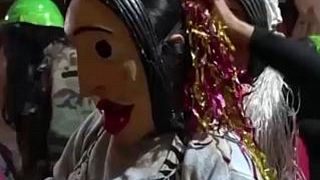
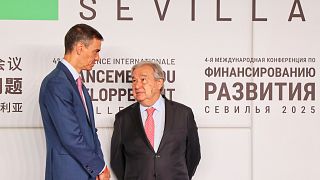

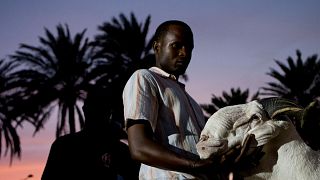
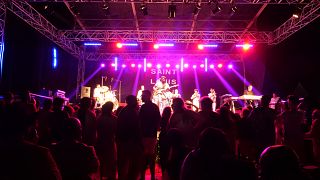
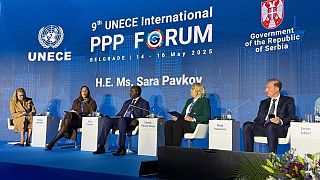



01:45
From Uganda to NYC: Zohran Mamdani's rise in American politics
00:54
Kaaba’s sacred cover replaced ahead of islamic new year
00:57
China's foreign minister meets with several African counterparts
02:20
In Brazil, knights and masked riders take to a football pitch for religious festival
01:17
Kenyan Muslims pray for Gaza as they celebrate Eid Al-Adha
01:21
Scorching heat challenges pilgrims at mount Arafat during sacred Hajj ritual